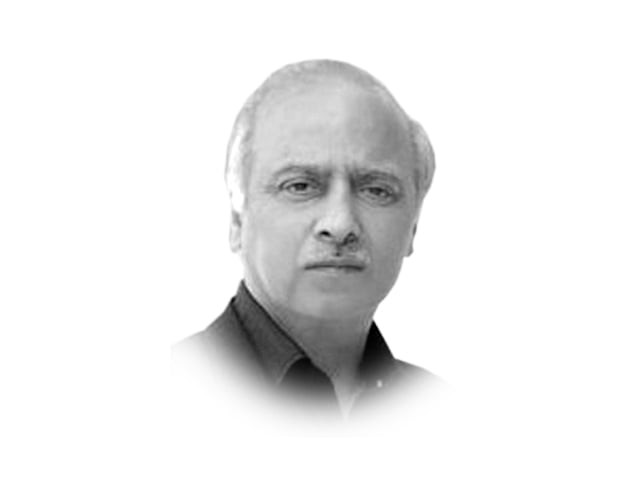Politicians against discrimination
The situation surrounding citizens demands an immediate revision of the public school curricula and textbooks

The writer heads the independent Centre for Research and Security Studies, Islamabad
Never before did a politician gather courage to so boldly articulate an issue that continuously draws both scorn and sympathy from abroad, i.e., non-Muslims living in Pakistan. It is an issue that some of us have been agitating against quite some time but hardly any politician had taken up.
It would have been wonderful had Aitzaz Ahsan gone a step further and mentioned the Constitution’s Article 25 of Chapter 1 which relates to “equal citizenry”. It clearly mentions that every citizen will have equal rights. But then, Articles 41 and 91 flout this fundamental right by specifically mentioning that the president will be a Muslim. “A person shall not be qualified for election as president unless he is a Muslim of not less than 45 years of age and is qualified to be elected as member of the National Assembly,” says Article 41(2).
Our Constitution-framers probably overlooked the inherent contradiction as well as the socio-political hazards when inserting these clauses into the 1973 Constitution. How can the Constitution guarantee equal rights to its citizens when its own subsequent articles restrict and reserve the top two offices of the state only for Muslims? This has led to an automatic exclusion of non-Muslims from top political offices.
The broad daylight murders of Salmaan Taseer, the PPP’s federal minister for minorities, Clement Shahbaz Bhatti, and the Human Rights Commission of Pakistan’s advocate Rashid Rehman remain a stigma for Pakistan, where both lack certainty of punishment and fear of reprisal by radicals have encouraged mob justice (Gojra, Rimsha Masih, Shanti Nagar cases, for example).
Now that the government and the military establishment seem to have realised the dangers inherent when there is disrespect for equal citizenry rights and the extremely debilitating consequences of the abuse of certain laws by religio-political parties and vested interests, it appears to be the right moment to initiate a review of such laws on the one hand, and to inculcate the fear of punishment for their abuse on the other. The government must — under the National Action Plan — ensure stern legal action against sectarian killers, criminals and jihadi outfits involved in hate speech and incitement to violence against non-Muslims.
The situation surrounding citizens at large, and the non-Muslim Pakistani citizens in particular, demands an immediate revision of the public school curricula and textbooks, especially those pertaining to religious instruction, history, social studies and Pakistan Studies.
For too long equal citizenry rights have been under attack. Social cohesion and peace, as well as adherence to international covenants, require the government to address issues that have helped subvert the fundamental rights of all citizens, faciliated vigilante justice, and encouraged abuse of laws. People like Aitzaz Ahsan must step forward to prevent the abuse of and discrimination against non-Muslims.
Published in The Express Tribune, April 17th, 2015.
Like Opinion & Editorial on Facebook, follow @ETOpEd on Twitter to receive all updates on all our daily pieces.
















COMMENTS
Comments are moderated and generally will be posted if they are on-topic and not abusive.
For more information, please see our Comments FAQ